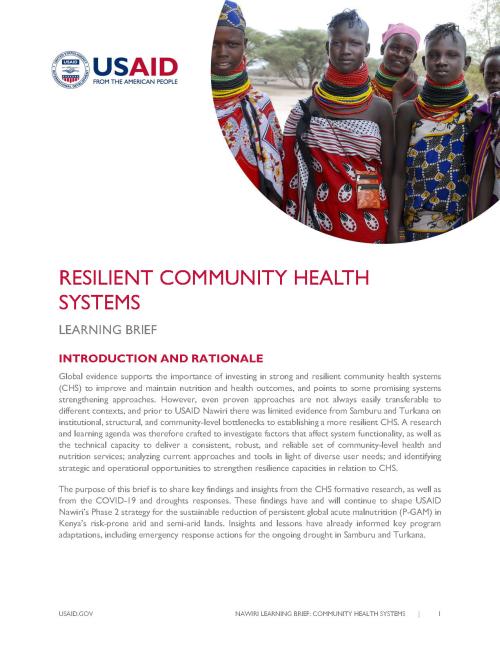Prior to USAID Nawiri, there was limited evidence from Samburu and Turkana on institutional, structural, and local bottlenecks to establishing a more resilient community health system. USAID Nawiri developed a research and learning agenda to investigate: 1) factors that affect system functionality and the technical capacity to deliver a consistent, robust, and reliable set of community-level health and nutrition services; 2) approaches and tools that reflect diverse user needs; and 3) strategic and operational opportunities to strengthen resilience in community health systems. This brief presents learning from formative research and implementation experiences related to these topics. The findings include that family-led mid-upper arm circumference and integrated community case management/community-based management of acute malnutrition can strengthen resilience capacities and empower communities. In addition, multiple systemic dysfunctionalities (e.g., late or non-payment, being overstretched, operational inefficiencies) impede the ability of community health volunteers to fulfill their potential as frontline health and nutrition workers and community interlocutors. Key gaps include integration and communication across the tiers of the health system and adolescent-responsive services. These findings have and will continue to shape USAID Nawiri’s Phase 2 strategy for the sustainable reduction of persistent acute malnutrition in Kenya’s arid and semi-arid lands.
Learning Brief
Full Report(s)
